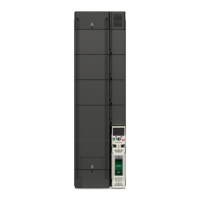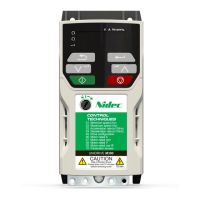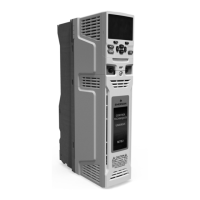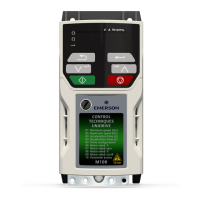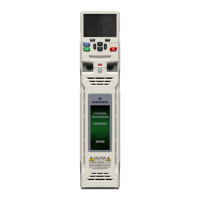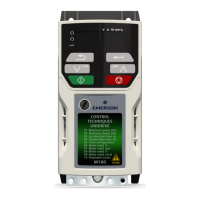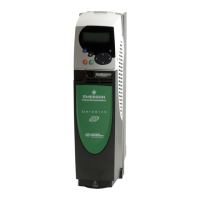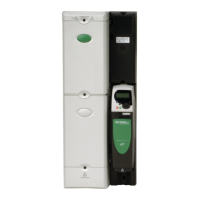SI-Ethernet User Guide 147
Issue: 1
Safety
information
Introduction
Mechanical
installation
Electrical
installation
Getting started Parameters
Key features
and Protocols
PC Applications Security Diagnostics
Glossary of
terms
Index
ELSE
// ERROR - set DOP0 ON
#86.03 = 1
ENDIF
ENDIF
goto top: // main background loop
} //Background
7.5.4 Non-cyclic (explicit) data transfer
Non-cyclic or explicit messaging is used to read and write parameters non-cyclically by
means of assembly objects. All of the AC Drives profile attributes can be accessed
using explicit messaging.
The Control Techniques objects provide access to all drive and slot parameters using
the following format.
7.5.5 Cyclic (implicit or polled) data transfer
Cyclic data is a method of data transfer that must be setup during network configuration,
but is transmitted automatically at the determined rate once configuration is complete.
EtherNet/IP transfers cyclic data using assembly objects, “cyclic data” is sometimes
referred to as “Polled data” or “implicit data”.
The terms “input” and “output” refer to data from the perspective of the PLC, an “output”
assembly object transfers data from the PLC to the drive, an “input” assembly object
transfers data from the drive to the PLC.
7.5.6 Configuring EtherNet/IP cyclic parameters
In order to use cyclic data over EtherNet/IP, the EtherNet/IP interface must be
configured to map the required parameter data to the assembly object.
For drive parameter access, object 100 (0x64) is used for reading parameters and
object 101 (0x65) is used for writing parameters. The pre-defined assembly objects as
listed in Table 7.8 Supported drive assembly objects can also be configured as cyclic
data.
Object CT Group CT This Slot CT Slot 1 CT Slot 2 CT Slot 3 CT Slot 4
Class code 100 (0x64) 101 (0x65) 102 (0x66) 103 (0x67) 104 (0x68) 105 (0x69)
Instance Menu
Attribute Parameter
Read code 14 (0x0E) Get_Attribute_Single
Write code 16 (0x10) Set_Attribute_Single
An instance value of 0 is not a valid value in this context, therefore an instance value of
200 (0xC8) should be used to access menu 0 parameters. For more information on the
Control Techniques object see section 7.5.22 Control Techniques objects on page 178.
Some PLCs provide the option of transmitting a configuration assembly object. The
Ethernet interface does not use a configuration object; if one is required by the PLC then
instance 1 should be specified with a length of 0 bytes.
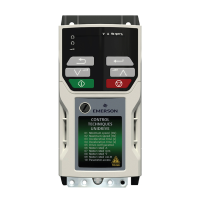
